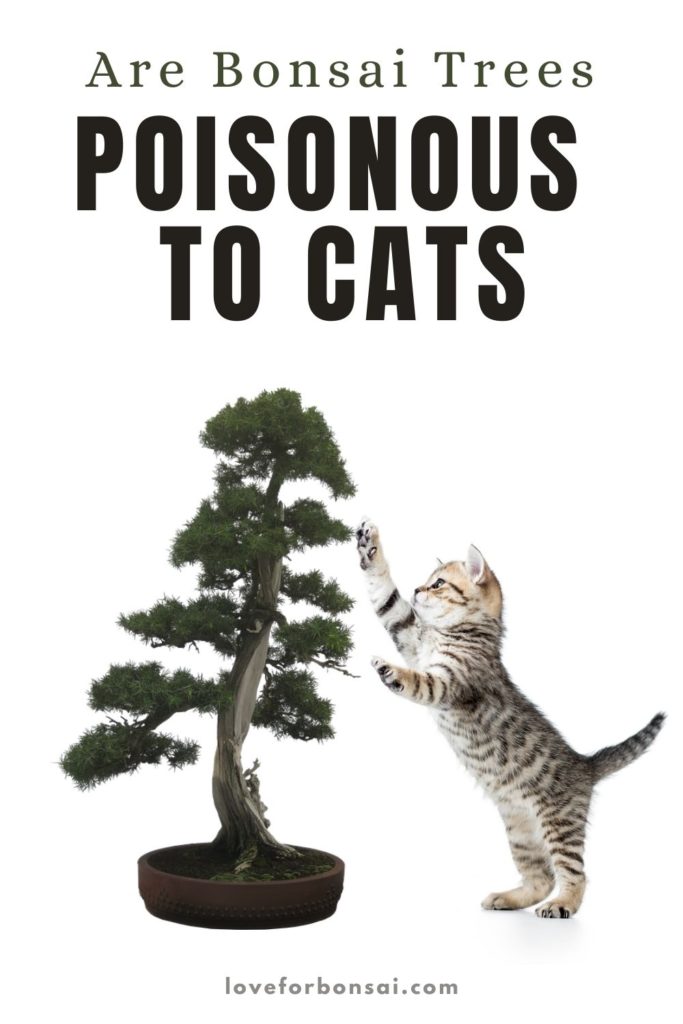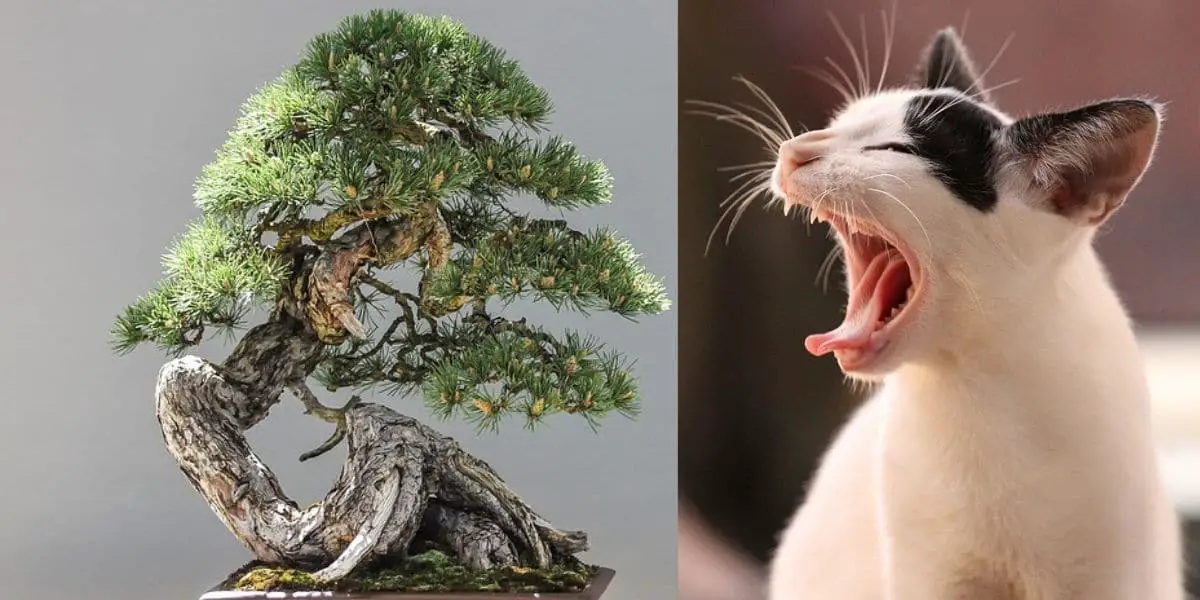If you are a cat owner you will agree with me that cats like to chew weird things. Unfortunately, this might also add your favorite bonsai plant.
Bonsai resembles art, peace and spirituality and nothing is associated with violence. But not all bonsai plants are safe for you to have in your house especially if you have cats. They can have toxic effects if ingested by cats.
Not only bonsai but plants, in general, have some defence mechanism towards animals attacking them. So keep this in mind whenever you are planning to bring a new bonsai or plant in your house. Do a lot of research and take precautionary measures.
Are Bonsai Trees Poisonous To Cats?
Most of the bonsai trees are not poisonous to cats. But some of them are. The most poisonous bonsai tree for a cat is the sago palm tree. The bonsai contains a toxin called cycasin that can cause severe liver failure in cats.
Which Bonsai Trees Are Poisonous to Cats?
Sago palm trees are very poisonous to cats. Most of the parts of this tree are poisonous including the seeds. The seeds are so poisonous that even 1 or 2 seeds can kill a cat or even a child.
Other than sago palm tree boxwood bonsai trees are also toxic to cats. If ingested they can cause vomiting or diarrhoea.
Here are some of the other examples of poisonous bonsai trees:
- Rhododendron
- Desert rose
- Persian lilac
- White cedar
- Fig
- Indian rubber plant
- Jerusalem oak
- Cherry
- Buddist pine
If you have these bonsai trees make sure your cat doesn’t come in contact with them. My advice would be to avoid this bonsai if you can.
Which Bonsai Trees Are Safe For Cats?
Most of the popular bonsai trees are non-poisonous and safe for cats. You can use these bonsai trees for your house. Here are some of the cat-friendly bonsai plants:
- Christmas cactus bonsai
- Hibiscus bonsai
- Bamboo palm bonsai
- Juniper
- Japanese maple
- Fukien tea
How to Protect Your Bonsai trees From Cats:
A cat is a very agile animal. They might jump and tip over your bonsai. You need to protect them from cats.
If it’s an indoor cat you don’t have much of a problem. Put the bonsai outside and they are more or less safe. Don’t worry about the bonsai itself. They are more likely to be healthy outside.
If it is an outdoor cat you have to put some barriers around the bonsai plants. You can also put an animal repellant like this to scare away cats. These are motion censored and activated only when a cat comes nearby.
How To Protect Your Cat From The Toxic Bonsai:
Make sure the bonsai is not easily accessible to the cat. This might mean you have to put some physical barrier between the cat and the bonsai.
You can also use citrus sprays around the bonsai. Cats usually don’t like the smell of citrus fruits, so it will prevent them from coming near the plant.
Use orange peels around the bonsai to keep the cats away.
Also, grow some catnip for your cat so it would prefer them over your beloved bonsai trees.
If you’re keeping proper track of your bonsai, you’ll notice missing leaves or branches. If you find anything suspicious, look out for the cat and observe her closely.
Remove any plant material from your cat’s mouth (if there is any). Gently wash the mouth of the cat with water.
If you find out that the cat ate the missing part of the bonsai, take her to the vet. Especially if you find any of the following symptoms on the cat you have to act fast.
Toxic Symptoms On Cats:
This might happen that after all your efforts the cat still nibbles your toxic bonsai. Here are some of the symptoms you might find on your cat.
- The cat might feel irritated. You will notice this in its behavior.
- There could be some rash or discoloration on the skin of the cat.
- The cat might be urinating or drinking more than usual.
- It might be facing difficulty in breathing or swallowing.
- If the toxicity is greater you might see Diarrhea or vomiting.
Treatment For The Cat:
If you have any doubts over what the cat has eaten, take her to the vet immediately. You should be aware of all the plants that are in your house. If possible, take a sample with you.
You can also call a pet poison control center. Keep these phone numbers handy in the event of an emergency.
Unless a pet health professional tells you to do so, don’t try to induce vomiting in your cat, it can be more dangerous for them to vomit whatever they consumed.
Always follow the vet’s specific instructions.
Like the post? Don’t Forget To PIN IT

